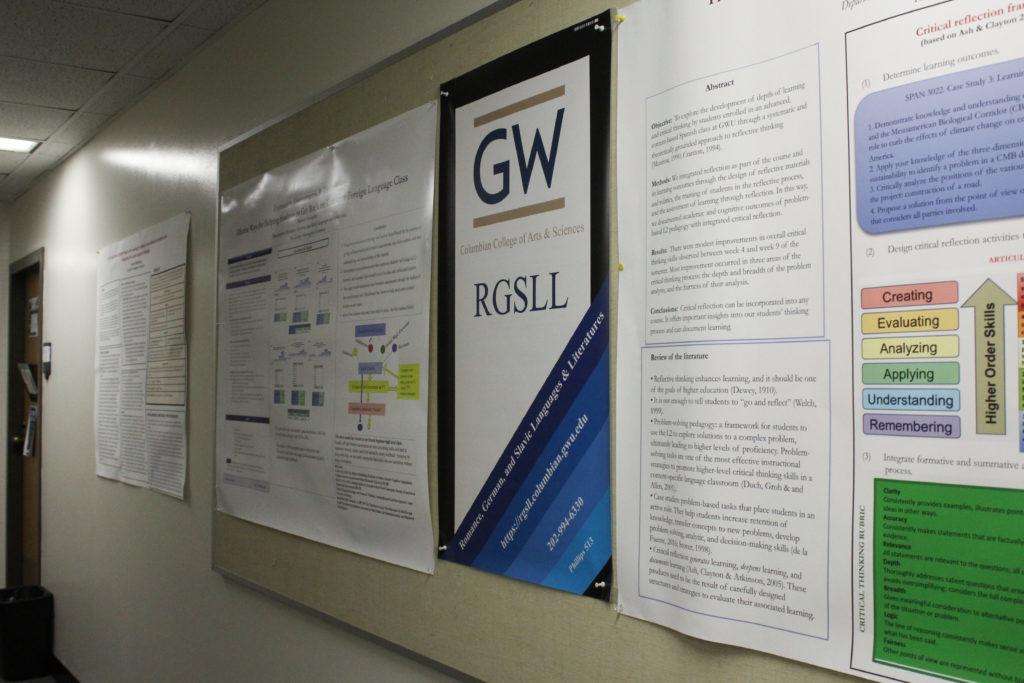To prevent classes from being slashed due to a lack of instructors, some foreign language courses are now being taught in English – with an optional language component.
Some classes in the Romance, German and Slavic language and literature department will give an optional language credit to students if they submit assignments in the targeted foreign language, but the classes will otherwise be conducted in English. Faculty in the department said the classes, known as hybrid courses, would encourage more students to register for them and would decrease the load on individual professors after several classes were canceled last academic year over a lack of instructors.
Richard Robin, the director of Russian language and the department’s chair, said the new courses were one way the department is trying to prevent having classes that are too empty or too full. The department also expanded its most popular course offerings to accommodate student interest in introductory courses and opened up higher-level courses to other majors this academic year, he said.
“No one can expect an undergraduate division to hold onto every course where only six people show up. But we don’t want to have 20-person language courses either,” Robin said. “I believe that we are slowly moving towards an accommodation where everyone can be satisfied.”
In hybrid courses, students can get an extra credit hour and fulfill a foreign language requirement if they submit more advanced assignments entirely in a foreign language, but some students can take the class without the language component and wouldn’t need to know any other language besides English to take the course, faculty said.
Robin said the department has often struggled to get enough students to enroll in courses, leading to canceled sections and forcing students to either join much larger classes with less individual instruction or seek enrollment through the consortium, which allows students to take courses at nearby schools like Georgetown or American universities.
Last fall, 16 of the language courses within the department of romance, German and Slavic language and literature were canceled including at least seven Spanish classes that were eliminated because of a lack of instructors. This fall, fewer sections were scheduled than in past years and at least 11 classes across all six languages offered in the department were cut, according to the schedule of classes. In both years, Spanish courses had the highest number of cancellations.
Robin said the department is also facing staffing challenges because of the high demand of students from the Elliott School of International Affairs who need to fulfill language requirements for their majors. To meet the demand, the department was forced to hire part-time faculty for teaching-only positions, which has led to concerns that faculty won’t be able to do their own research.
“For any academic department, scholarship is lifeblood,” he said. “But when a school goes through less than glowing economic times and class coverage becomes an issue, a dean is more likely to hire more teachers to do more teaching, not more scholars to teach relatively few students.”
Robin said the hybrid courses could allow the department to hire more full-time faculty who will both teach and conduct research. He said the courses would appeal to all students, even those not pursuing a language.
Integrating these new classes into the five language programs within the department is still under development, but some professors have already begun to transition some of their courses to align with the new model.
Mary Stein, an associate professor of German and international affairs, said her German Film class would follow the hybrid model this academic year. Other film classes in the department, such as a French Cinema class, have also periodically been offered in English in years past and the extra credit opportunity will be an expansion of that model.
“The University is really cracking down on courses that are underenrolled, under 10 students,” Stein said. “I think it’s University-wide but it’s affected smaller programs like ours.”
Stein said the German-language course From Romanticism to Realism would be offered for the first time in English next semester. But teaching upper-level language courses in English could hamper the education the department is able to offer to students, she said.
“It’s really unfortunate that the University is instituting this policy because it’s going to weaken our major,” she said, referring to replacing cancelled upper-level German courses with classes that would be primarily in English. “It’s a question of how to sustain the majors in small programs when we have our disciplinary expectations and what we want to say students should be able to do at the end of four years of German language study.”
She said the courses are designed to appeal both to foreign language students struggling to find replacements for canceled classes or to students from other majors, like English who are looking to fulfill a language requirement.
“When it comes time to cancel an upper-level literature course we can say, ‘look, we’re serving these larger student bodies in these ways,’” she said. “That’s our hope, at least.”





